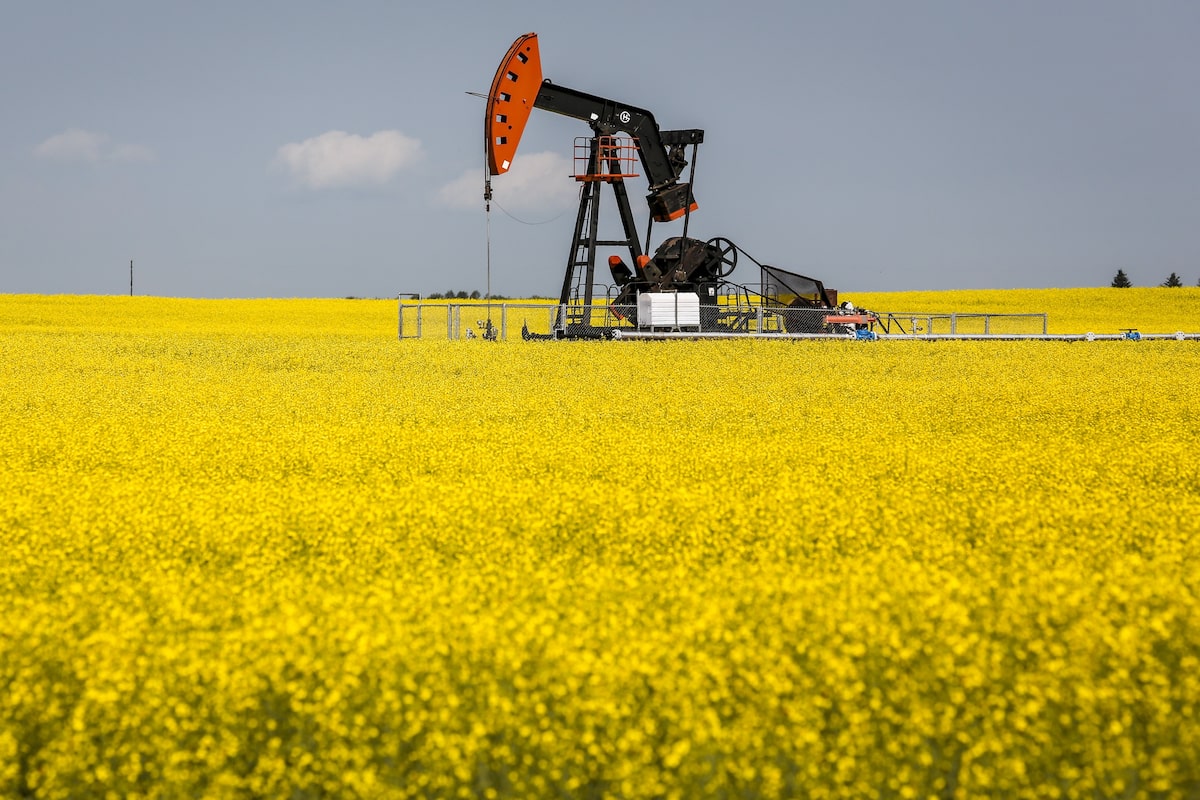A pumpjack draws oil from a canola field near Cremona, Alta. China is the largest market for Canadian canola seed, valued at $4-billion in annual exports.Jeff McIntosh/The Canadian Press
Canada’s canola industry is facing steep losses and urging Ottawa to compensate farmers after Beijing announced a 75.8-per-cent preliminary duty on Canadian canola seed.
The Tuesday morning announcement comes toward the end of a one-year anti-dumping probe launched by China in September. Canada’s agricultural sector has benefited from extensive government subsidies and preferential policies that distort markets, said an announcement from China’s Ministry of Commerce on Tuesday.
But Beijing’s actions are not about dumping and effectively cut off Canada’s most lucrative crop from one of its most important markets weeks before harvest, say many in the sector.
Canadian canola is exported in accordance with rules based trade and fair market access, said Chris Davidson, President of Canola Council of Canada. Beijing’s tariffs are instead a “political issue that needs a political resolution,” he said.
The anti-dumping investigation came after Ottawa imposed 100-per-cent tariffs on Chinese-made electric vehicles and 25-per-cent tariffs on Chinese steel and aluminum. Beijing imposed 100-per-cent tariffs on meal and oil in March as retaliation for Ottawa’s tariffs. Now all three canola products – meal, seed and oil – are facing Chinese tariffs.
“There are geopolitical forces and we seem to be getting side-swiped,” said Dale Leftwich, Policy Manager at SaskOilseeds, adding that farmers feel like “collateral damage.”
Canola farmers feel their livelihoods are being sacrificed to save the auto industry
“This is fairly devastating right now,” said Alberta farmer Roger Chevraux. His crop is around three weeks away from harvest and it lost $90,000 in value after markets reacted and the price per bushel dropped by $1.
Mr. Chevraux will try to hold onto the crop until prices improve. But storage space is limited and September is an expensive time of year. Costs like fuel from running harvest machinery and the bill for fertilizer might force a number of farmers to take a low price. The price could also fall lower.
“We need a return to rules based trade all the way around the world … We need normal trade we can rely on.”
In the meantime, Mr. Chevraux would like to see Ottawa offer compensation.
“They’re willing to support other industries in Canada. I sure hope they don’t forget about us.”
Valued at $4-billion in annual exports, China is the largest market for Canadian canola seed. It is also the largest vegetable oil consumer in the world, with an annual consumption of 38.3 mmt.
The product set for China cannot be easily move elsewhere.
There have been some promising developments in Ottawa’s relationship with China, said Mr. Davidson. In early June, Canada and China trade ministers committed to convening the Joint Economic and Trade Commission.
“We will be looking for the government to double down on those efforts moving forward.”

